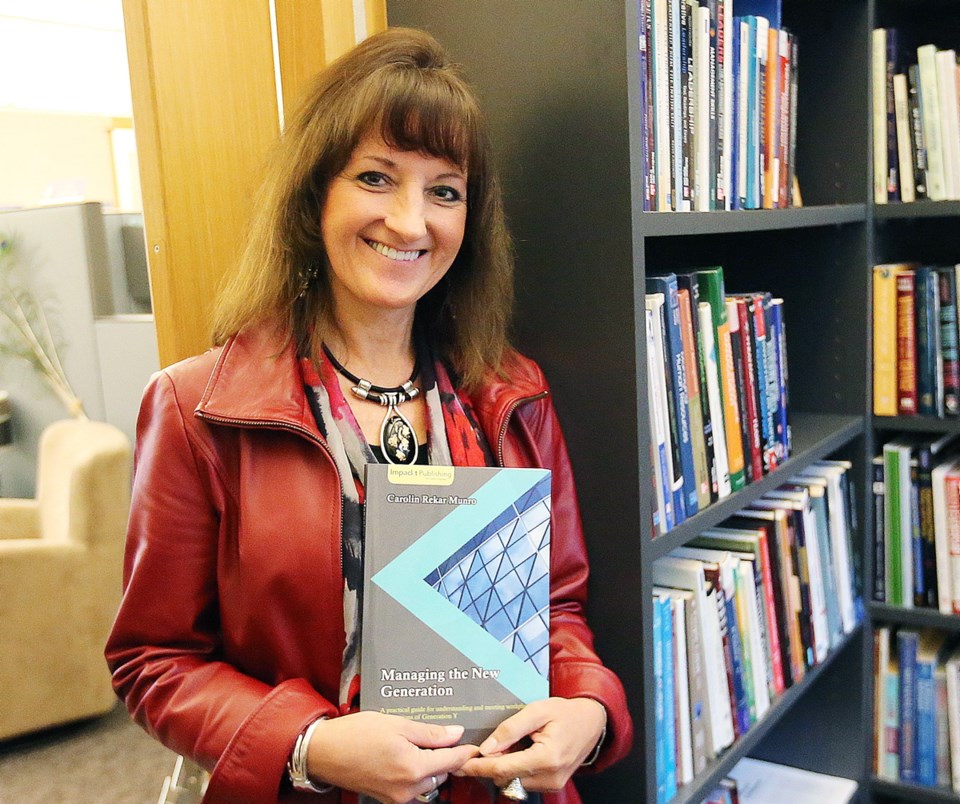Caley Leonard works full time making espresso for a businessman she considers more friend than boss. But for her, loyalty doesn’t trump personal freedom.
“I want to take time off when I want to take time off and I never want to feel trapped,” said Leonard, 26.
The Victoria woman recently decided, after three years of making coffee, that it was time to restart her post-secondary education in nursing. So she went to her boss and asked to work only four hours a day. He agreed.
“He was a little sad that I won’t be here full time, but he said having me part time is better than not having me at all,” said Leonard. “A lot of other people would have just said: ‘That’s not cool. Who do you think you are?’ ”
Leonard’s quick shift in workplace ambition and the need to be flexible is one of the key features of people her age.
She is a member of “generation Y,” the demographic segment born after 1981 and following in the wake of generation X. Popularized by Vancouver author Douglas Coupland in his 1991 novel of the same name, the term generation X generally refers to those born after the post Second World War baby boom, from the early 1960s to the early 1980s.
Unlike X and the baby boomers, generation Y (also known as millennials) has come of age with digital technology. Many have never dialled a rotary telephone and find it difficult to comprehend the need for fax machines.
At work, generation Y values speedy communication over in-depth dialogue. They want employers to serve them personally and not just with a paycheque. The opportunity to be flexible, to question, learn and speak out, is often valued more than money.
Carolin Rekar Munro, associate professor in the School of Leadership and Human Resources at Royal Roads University and author of Managing the New Generation, says Y is the largest single demographic since the baby boom, so it’s imperative to understand them.
“If you want them to buy whatever it is you are selling, then get into the mindset of gen Y,” she said. “Get them on your team. Get them into your organization and keep them.”
Y is also the best-educated generation, typically taking more schooling than their demographic predecessors. They have the best knowledge of the newest technologies and practices to offer new employers.
And they are more entrepreneurial, more willing to take risks and start their own organizations. So it’s in the best long-term interests of companies and organizations to attract them and keep them as employees, or they might become competitors.
Rekar Munro said the segment is often jokingly characterized as “generation why” because they are so determined to ask questions of whatever organization they join.
“They are always asking ‘Why?’ ” said Rekar Munro in a recent telephone interview.
“‘Why do we do things this way? Why do you structure the company the way you have? Why do we have eight layers of hierarchies? Why do I need signing permission on this?’ ”
Rekar Munro said this “cascade” of questions can be frustrating, even threatening, for older generations. But what members of generation Y are really doing is solidifying their own connection to a place.
“Their greatest frustration is hearing ‘This is the way we have always done it,’ ” she said. “It tells them an organization may not be very open or flexible.”
And that attitude could be the beginning of the end for a business or organization.
“When gen-Yers find a door closes on them and their entrepreneurial spirit, that’s when they think about a move or a shift,” said Rekar Munro. “And these are not the people you want to compete with if they go and start a business across the street.”
Rekar Munro has written her book as a practical guide for managers to help them bridge the current generation gap so they can attract generation Y and retain them as employees. But she has also encountered young people who say they want to read it so they can learn what to expect and how best to cope when they go to work.
Meanwhile, Leonard isn’t sure what area of nursing she will pursue. She might help people with disabilities or seniors or even young people.
She’s not sure where she will work. But she might even consider going to work for herself, serving clients in their homes. Leonard concedes she may not even like nursing.
“Then I will try to do something else,” said Leonard. “I don’t think there is any limit to the time and money and effort you can put into something to create your own life and happiness.”



